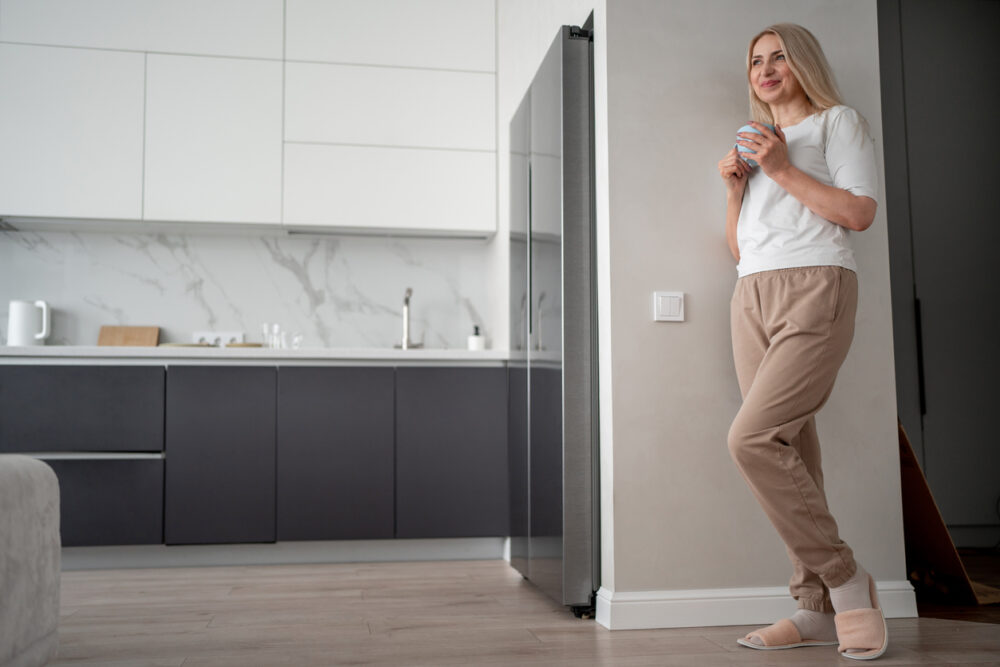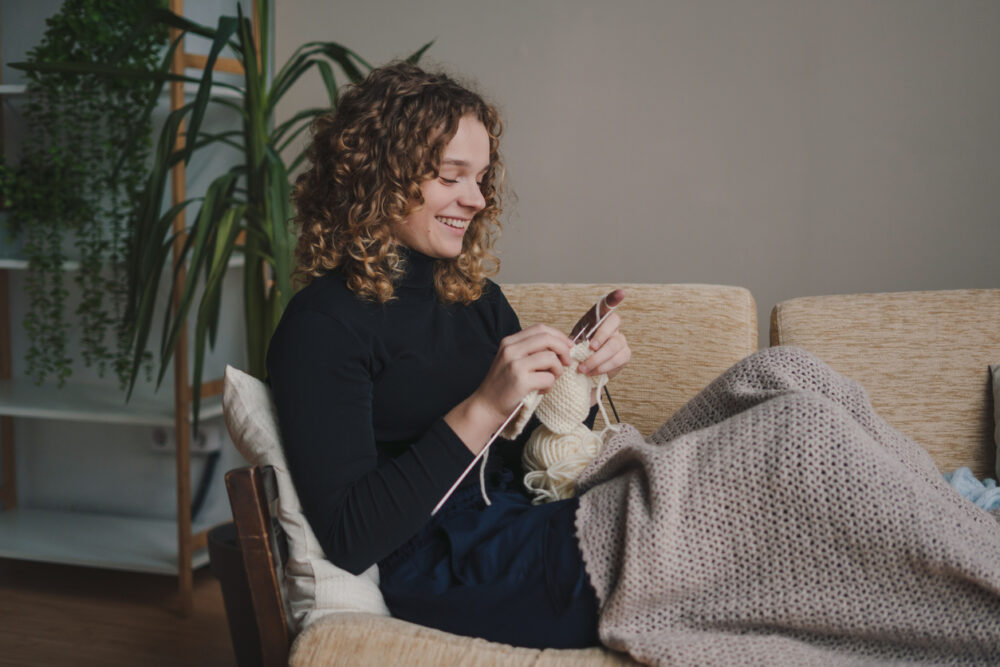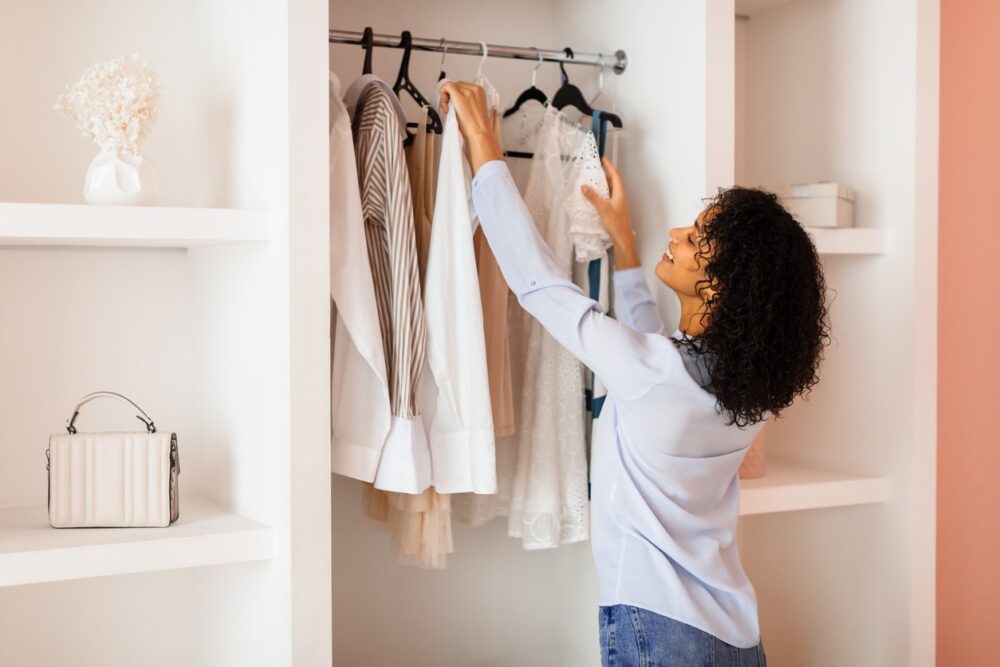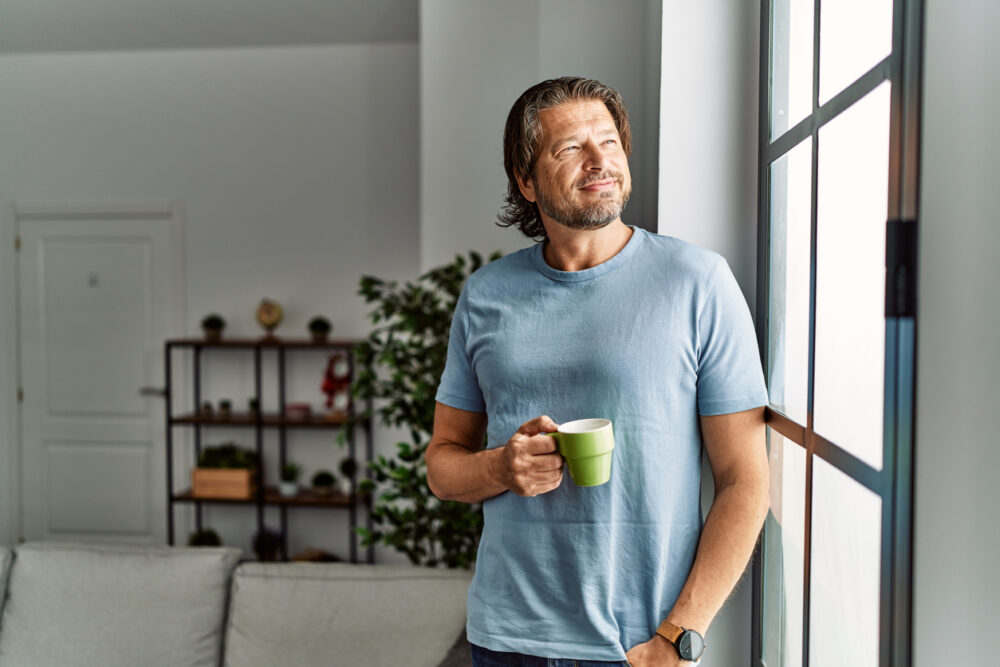Unlock a richer, more meaningful life by breaking free from the urge to constantly acquire.

You know that fleeting thrill of buying something new, followed by the inevitable guilt, clutter, or the realization that you didn’t really need it in the first place? We live in a world constantly whispering, or rather, shouting, at us to consume more, often leaving us feeling overwhelmed by possessions and perpetually wanting more. But what if the key to a richer, more fulfilling life wasn’t about adding, but about subtracting?
Imagine the freedom of a lighter home, a healthier bank account, and a clearer mind, all achieved by simply opting out of the endless cycle of acquiring things you don’t genuinely need. This isn’t about deprivation or living without; it’s about intentionality and recognizing the true value in experiences, relationships, and well-being over material accumulation. Surprising transformations that occur when you embrace a lifestyle of conscious consumption, proving that less truly can be more.
1. Your financial stress will melt away surprisingly fast.

That nagging anxiety about money often directly links to how much you’re spending, especially on things you don’t truly need. When you consciously decide to halt those impulse buys and unnecessary purchases, you’ll be amazed at how quickly your bank account starts looking healthier, according to Ashlee Piper at The Guardian. Suddenly, you’re not just scraping by; you might actually see your savings grow, or be able to pay down debt faster than you thought possible.
Financial breathing room brings immense peace of mind. It’s a liberation from the constant pressure of living paycheck to paycheck or worrying about unexpected expenses. This transformation isn’t about deprivation; it’s about reallocating your resources to what truly matters to you, whether that’s experiences, investments, or simply building a safety net. The mental relief alone from financial freedom proves a huge game-changer for your overall well-being.
2. Your home will feel lighter and more spacious, effortlessly.

Ever feel suffocated by too much stuff, even in a big house? Curbing unnecessary purchases automatically makes your living space less cluttered, as reported by Jancee Dunn at The New York TImes. New items won’t constantly vie for shelf space or add to overflowing drawers. We’re talking about preventing clutter from ever entering your home in the first place, not just decluttering after the fact. A more organized and open environment profoundly impacts your mental state. It reduces visual noise, making your home a sanctuary rather than a storage unit.
Newfound spaciousness allows for a sense of calm and clarity that simply can’t exist when you’re surrounded by excess. It’s a natural consequence of intentional consumption, creating a more harmonious and inviting atmosphere you’ll truly love coming home to.
3. You’ll gain a surprising amount of free time back.

Consider all the hours we dedicate to shopping: Browse online, driving to stores, trying things on, then dealing with returns, organizing new purchases, and perhaps even cleaning around them. When you drastically reduce buying things you don’t need, you reclaim hours, even days, of your life. Found time isn’t just empty space; it’s an opportunity to pursue beloved hobbies, spend quality moments with friends and family, learn something new, or simply relax and recharge. The endless cycle of acquiring and managing possessions can consume vast amounts of time.
By opting out, you free yourself to engage with life more deeply and meaningfully, rather than getting caught in the consumer treadmill, as reported by Julianna at The Simplicity Habit. It’s an unexpected dividend that truly transforms your daily rhythm.
4. Your decision-making will become clearer and less impulsive.

The constant urge to buy can create a mental fog, often fueled by advertising and the fear of missing out. When you consciously choose to stop buying things you don’t need, you begin to rewire your brain’s reward pathways. You become more discerning, less susceptible to fleeting trends or marketing ploys. This shift translates into other areas of your life as well. You’ll find yourself making more thoughtful, intentional decisions, not just about purchases, but about how you spend your time, energy, and attention.
Clearer thinking reduces mental noise and impulsive reactions, allowing you to approach challenges with a more grounded and focused mindset. It’s a powerful exercise in self-control that strengthens your overall ability to make wise choices.
5. Your appreciation for what you already own will deepen significantly.

When you’re constantly chasing the next new thing, it’s easy to overlook the value and utility of what you already possess. However, when you hit pause on unnecessary buying, a wonderful thing happens: you start to truly see and appreciate the items you already have.
That perfectly fitting sweater, the sturdy coffee mug, the reliable pair of shoes – they suddenly gain new value and meaning. You might rediscover forgotten treasures or find new ways to use existing items. Shifting from constant longing to grateful appreciation is incredibly liberating. It fosters a sense of contentment and abundance, replacing the perpetual feeling of needing more. Changing this simple perspective can profoundly enhance your daily satisfaction and reduce the consumer-driven discontent many people experience.
6. You’ll uncover your true values, unclouded by materialism.

The relentless pursuit of “stuff” often distracts us from what truly matters in life. When you intentionally step off the consumer treadmill, you create space to reflect on your core values. Are experiences important? Relationships? Personal growth? Contribution?
Without the constant noise of wanting more, you can better hear what genuinely brings you joy and fulfillment. Gaining clarity helps you align your actions with your deepest beliefs, leading to a more purposeful and satisfying life. You stop defining yourself by what you own and start defining yourself by who you are and how you live. It’s a powerful journey of self-discovery that can lead to profound personal insights and a more authentic existence.
7. Your creative problem-solving skills will flourish.

When you can’t just buy a solution to every little need or desire, you’re naturally forced to become more resourceful and creative. Need a specific tool? Perhaps you can borrow it from a neighbor, or find an alternative way to accomplish the task. Want a new look for your home? You might rearrange furniture, repurpose existing items, or get crafty with what you have. Constraints spark ingenuity.
They challenge you to think outside the box, to mend rather than replace, and to see new possibilities in the items you already possess. Increased resourcefulness isn’t just about saving money; it builds confidence in your ability to adapt and innovate, empowering you to tackle challenges in all areas of your life with greater cleverness.
8. Your relationships will likely become stronger and more meaningful.

Consider how much energy and time can be consumed by acquiring and managing possessions. When you redirect that energy, you automatically have more to give to the people who matter most. Instead of shopping, you might spend more quality time with loved ones, engaging in experiences rather than exchanging gifts.
Moving away from a material focus allows for deeper conversations, shared activities, and a greater emphasis on emotional connection. It reduces the pressure to buy things to express affection and instead encourages acts of service, presence, and genuine understanding. A newfound capacity for connection can lead to richer, more authentic relationships built on shared moments and mutual appreciation, rather than superficial exchanges.
9. Your mental clutter will decrease, leading to greater peace.

Just as physical clutter can overwhelm your home, mental clutter can overwhelm your mind. The constant bombardment of advertisements, the desire for new things, and the decision-making around purchases all contribute to mental noise. When you stop buying things you don’t need, you significantly reduce this mental burden. You’re no longer constantly thinking about what to buy next, what sales to watch for, or how to afford new items.
This creates quiet space in your mind, allowing for more clarity, focus, and inner peace. It’s like decluttering your brain, making room for more important thoughts, creativity, and calm reflection. Mental liberation is one of the most profound benefits of living more intentionally with your consumption habits.
10. You’ll become more resilient and adaptable to change.

In a world that’s constantly shifting, being less reliant on acquiring new things builds incredible resilience. When you’re not dependent on retail therapy or new purchases for happiness or problem-solving, you develop stronger inner fortitude.
You learn to make do with what you have, to adapt to unforeseen circumstances, and to find contentment in simplicity. Adaptability means you’re better equipped to handle economic downturns, unexpected challenges, or simply the natural fluctuations of life. You’ll worry less about what you “can’t” buy and focus more on what you “can” do with what’s available. Cultivated self-reliance is a powerful asset, making you less vulnerable to external pressures and more capable of navigating whatever comes your way.
11. Your true self-worth will shine through, beyond possessions.

Many people unconsciously tie their self-worth to their possessions: the car they drive, the brands they wear, the size of their house. When you stop buying things you don’t need, you begin to dismantle this false association. You learn that your value isn’t determined by what you own, but by who you are, your character, your skills, and your relationships.
Shifting your focus can be incredibly liberating, freeing you from the constant pressure to keep up appearances or impress others with material goods. It allows your authentic self to emerge, unburdened by external validation. A newfound sense of self-worth is deeply empowering, fostering confidence that radiates from within, regardless of your material possessions.
12. You’ll inspire others to rethink their own consumption habits.

Leading by example is a powerful form of influence, and when you embrace a lifestyle of buying less and choosing well, you’ll naturally inspire those around you. Friends, family, and even colleagues will notice your calm demeanor, your financial freedom, or the newfound clarity in your life. They might start asking questions about your choices, prompting them to reflect on their own consumption patterns. You become a quiet advocate for mindful living, showing that it’s possible to live richly and fully without constant accumulation.
This ripple effect creates positive change that extends beyond your own life, contributing to a broader cultural shift towards more sustainable and intentional ways of living. Your journey becomes a beacon for others seeking similar liberation.
